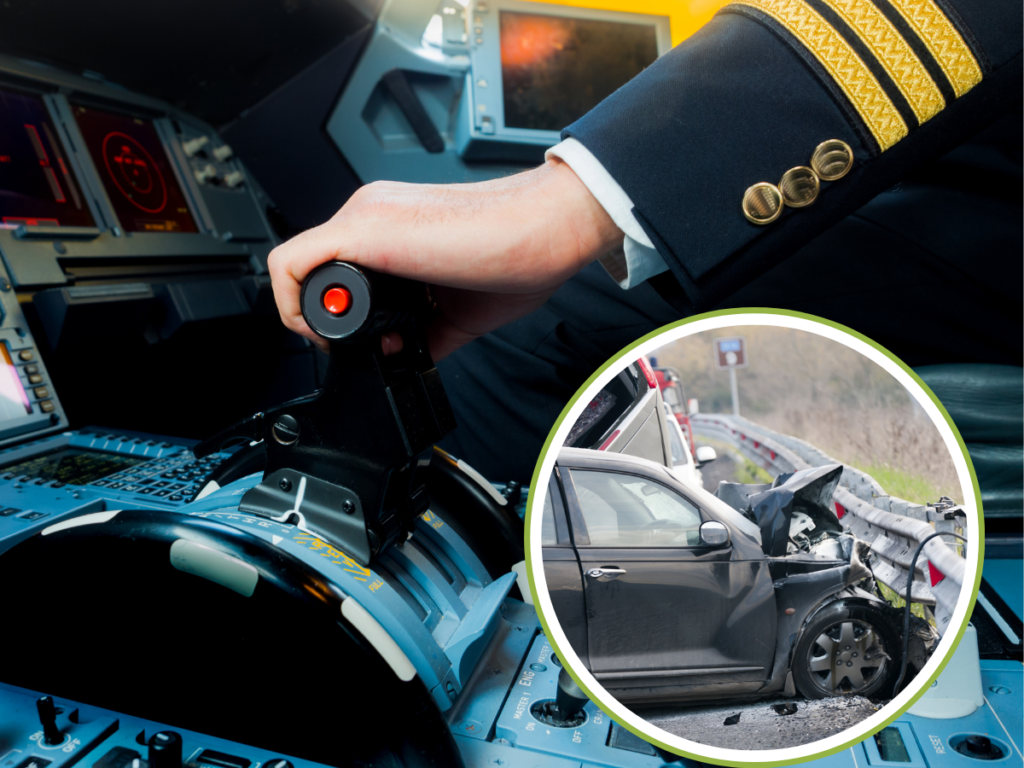Legal Challenges for Pilots After Car Accidents
Common Car Accident Scenarios for Pilots and How to Navigate Them Legally
Aviation is an unforgiving profession: precision, responsibility, and legal acumen are not optional; they are essential. For pilots, a car accident isn’t just a setback, it’s a potential career-ender. Every detail matters, from where the accident occurred to how the legal system and the FAA will evaluate your fitness to fly. Understanding the legal and regulatory implications is not just advisable- it’s imperative.
The High-Stakes Legal Battlefield: On-Duty vs. Off-Duty Accidents
Accidents While Commuting to the Airport
A car accident on your way to the airport may seem like a routine legal matter, but for pilots, the consequences can be devastating. Injuries that jeopardize your FAA medical certification can leave you grounded indefinitely. Furthermore, insurance and liability disputes are anything but straightforward when an employer’s policies and personal coverage collide.
Legal Considerations:
- Typically, accidents during a commute fall under personal insurance. However, if you were on-call or fulfilling a duty tied to your employment, employer coverage could be a factor.
- Any injury, no matter how seemingly minor, must be meticulously documented and disclosed to your Aviation Medical Examiner (AME) to avoid legal repercussions down the line.
Accidents Between Flight Assignments
For commercial pilots hopping between assignments, an accident during a layover introduces legal and regulatory complexity. Was the vehicle employer-provided? Were you engaging in job-related duties? These questions dictate not just insurance claims but also potential liability disputes.
Legal Considerations:
- If the accident occurs while engaged in work-related travel, employer insurance and workers’ compensation may be triggered.
- If a rental car is involved, the liability shifts depending on company policy and rental agreement specifics.
Accidents in Company-Provided Vehicles
Pilots with access to company cars operate in a legal gray area. Liability disputes between insurers, employers, and third parties can rapidly escalate, creating a legal quagmire.
Legal Considerations:
- Employer-provided vehicles may be covered under corporate insurance, but exclusions and limitations must be carefully examined.
- If negligence in maintenance contributed to the accident, employer liability could come into play.
- Pilots must report injuries with precision, ensuring no missteps jeopardize future claims or FAA compliance.
The Intersection of Aviation Safety and Personal Injury Law
Pilots are trained to assess risk, document meticulously, and follow strict protocols. These skills become critical in the legal realm. But aviation expertise alone won’t protect you in a legal battle. That requires a sharp legal mind who understands both the skies and the courtroom. That requires Justin Drach.
As a former Naval Aviator with an ATP license and type rating in the Airbus A320, Justin Drach brings unparalleled expertise to personal injury. He knows the law. He knows the FAA. He knows how to fight.
- He helps pilots navigate personal injury cases to protect their FAA medical certification.
- He exposes legal pitfalls that can threaten a pilot’s career.
- He crafts strategies to maximize your financial recovery that a non-pilot would certainly not think about, consider, or understand.
Your Career, Your Future. Take Action Now
A car accident shouldn’t ground your career, but mishandling the legal aftermath can. The stakes are high, and one wrong move can mean lost certification, denied claims, or even career-ending liability.
If you’ve been involved in a car accident, you need more than just a lawyer. You need a legal strategist who understands aviation inside and out. Contact Justin Drach today. Protect your rights. Protect your career. Win the fight before it even begins.


